For many years, I have dedicated part of my studies to the issues of intercultural conflict management, as it has always been as important as conflict management itself. In conflict management, latent conflict is considered the riskiest, as it is hidden as it grows, becoming stronger and spreading its roots before it comes to the surface through complex and deep issues that need to be addressed.
Controversy around publishing images of the Prophet was a particular part of my studies for many years. Approaching this issue as an outsider was very interesting, and trying to understand the dynamics of how the issue could lead to open conflict. In a published paper, “Between Sanctity and Liberty”, I tried to analyse the issues from a different point of view, highlighting most of the recent incidents related to the conflict from the assassination of the American Ambassador in Libya John Stevens, to the Danish cartoons, and, of course, Charlie Hebdo.
di Emanuela Locci (*) – La Turchia fa parlare di sé, sia in relazione alle dispute internazionali che la vedono contrapposta a paesi come la Grecia, la Francia e gli Emirati Arabi Uniti, per la questione relativa alla ricerca e allo sfruttamento delle fonti energetiche presenti nel Mediterraneo Orientale, sia per le questioni di politica interna che vedono un progressivo indebolimento, almeno secondo gli ultimi sondaggi, del partito al potere, l’Akp, guidato dal presidente della repubblica Erdogan.
Da mesi la Turchia sta vivendo un’escalation del potere del Presidente Recep Tayyip Erdoğan e del suo partito l’Akp che regge le sorti del paese da quasi un ventennio.
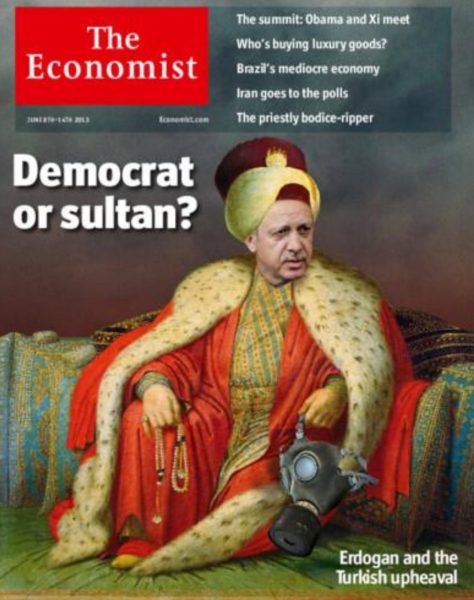
La girandola di avvenimenti che stanno interessando la Turchia è impressionante: dalla Libia alla Siria, alla contesa sulle fonti energetiche del Mediterraneo orientale, che la vedono contrapposta in particolare alla Grecia, paese con cui Ankara non ha mai avuto buoni rapporti.
Si è inasprito negli ultimi giorni anche il confronto con la Francia, che ha dei forti interessi nella zona e intende difenderli e con gli Emirati Arabi Uniti, che in questo frangente, hanno appoggiato immediatamente la Grecia con l’invio di arerei in supporto delle forze aeronavali elleniche.
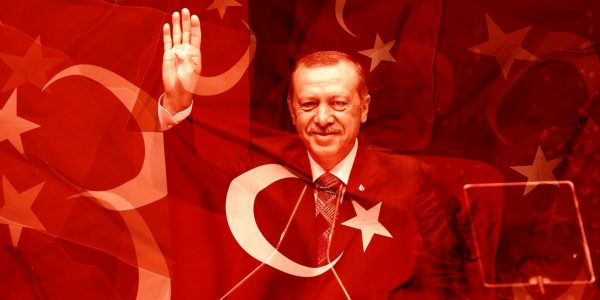
L’audace e spregiudicata politica estera, e l’accrescimento della sua influenza in paesi geograficamente lontani, come quelli africani, ma strategici, ha messo in allarme molte diplomazie, da quelle europee a quelle del mondo arabo che mal tollerano la presenza turca in numerosi scenari strategici internazionali.
Il caso più evidente è quello della Libia, dove la Turchia ha per il momento scalzato l’Italia e la Francia e in questo momento sta svolgendo un ruolo primario per la risoluzione almeno temporanea della guerra civile in corso da anni.
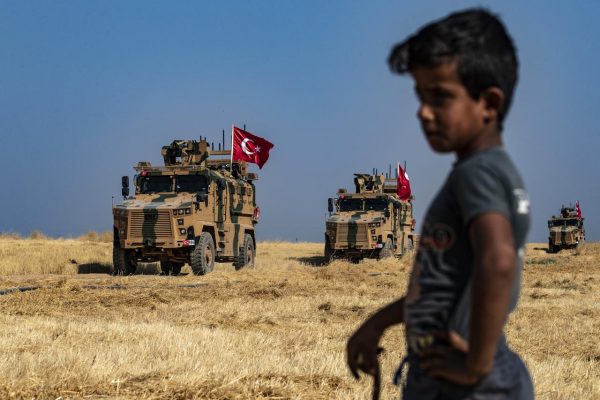 Militari turchi in Libia
Militari turchi in Libia
Al quadro internazionale si aggiunge quello interno caratterizzato da un governo che assomiglia sempre più ad una dittatura, con le opposizioni messe a tacere, i diritti umani calpestati, e con gli oppositori incarcerati che non hanno altra alternativa se non quella di portare avanti scioperi della fame ad oltranza e spesso mortali, nella vana speranza di vedere riconosciuto il diritto ad un giusto ed equo processo.
La popolazione sembra assopita e anestetizzata, anche a causa del Covid 19 che ha fatto deflagrare tutti i cronici problemi economici e sociali. Le priorità del cittadino turco medio non sono oggi quelle di combattere le iniquità e le ingiustizie, quanto quelle di sfamarsi, di trovare e soprattutto di non perdere il lavoro e cercare di superare questo periodo di crisi.
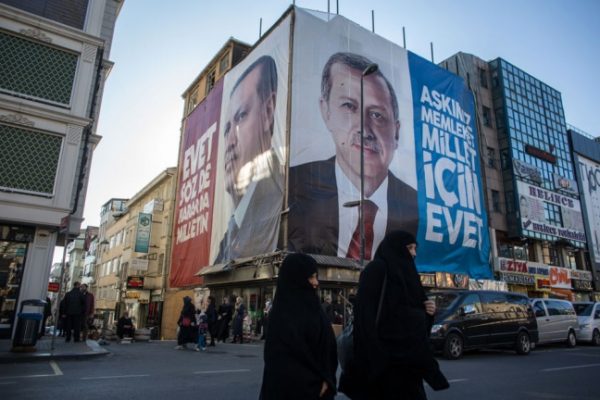
La scena politica è in mano all’Akp, ma già si notano le crepe che potrebbero portare alla dissoluzione di questo partito-stato: il calo dei consensi, le pressioni esercitate dagli alleati ultra nazionalisti e dai tanti gruppi di potere, in particolare quelli religiosi, fanno intravedere un incrinamento del potere del Presidente, che rimane la punta di diamante del partito.
Proprio Erdoğan vista la diminuzione del consenso popolare sul partito ha cercato di accrescere il proprio prestigio personale portando avanti alcune operazioni sia a livello internazionale che interno.
Tuttavia le prospettive non sono incoraggianti perché l’impegno della Turchia su più fronti e in vari contesti, con un ruolo non secondario, ha costi molto alti sia umani che economici.
L’economia è in ginocchio e l’ultimo espediente per cercare di salvarla, finanziando le imprese con i fondi derivanti dalle pensioni private, non è riuscito a stabilizzare l’inflazione che è galoppante e ad ancorare il valore della moneta che è stata svalutata ed ha perso gran parte del suo valore d’acquisto.
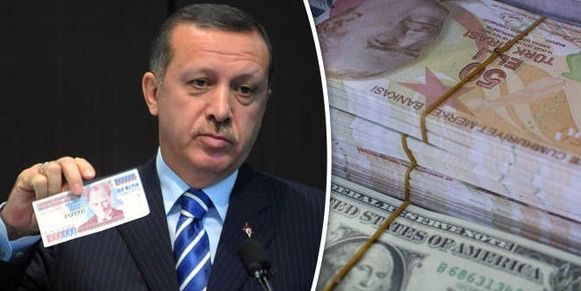
Per quanto tempo ancora la Turchia potrà sostenere tutto ciò?
La nazione sta rischiando un pericoloso avvitamento su sé stessa che potrebbe condurre ad una implosione politica ed economica. Sia ad Ankara e ad Istanbul, negli ambienti dell’opposizione, che in Europa e nelle capitali estere è chiaro che questa situazione è stata determinata dalla dissennata linea politica di una leadership che ha pericolosamente sovraesposto la nazione.
Un rischio che la Turchia potrebbe non essere in grado di reggere. I segnali sono già presenti e in un futuro non troppo lontano potremo sentire parlare di una nuova Turchia, libera da regimi autoritari e ingiustizie.
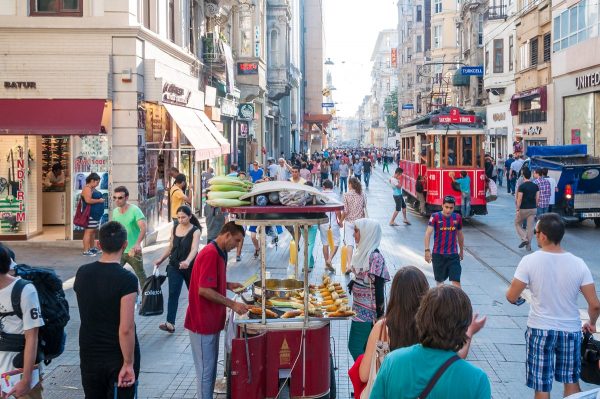
Emanuela Locci
Fonte: https://www.groi.eu/0YN5n
The incident at the Port of Beirut this week cannot be considered as just another disaster, like many others that occur daily in the Middle East. Not only because of the loss of life, damage and economic impact, but also for the other consequences that the incident will lead to.
The accident occurred at a very particular and delicate point in the history of Lebanon. The country is in the grips of an economic crisis, as a consequence of a policy of isolation and sanctions imposed by international actors, primarily the United States, targeted at draining the financial resources of Hezbollah. Prior to the explosions at the Port this week, the most important problem facing the Lebanese government was the economic crisis and its potential for social and political instability. The situation on the ground in Lebanon over the last has been dominated by growing discontent amongst the population as a result of an ongoing lack of essential services and development opportunities, along with an increasing assumption of corruption amongst the political class.
This week a Royal Decree was issued in Jordan to hold parliamentary elections in accordance with the provisions of law. The final stages of preparations are being made for new elections to be held on November 10, and the right atmosphere must be prepared for successful elections. Elections are a critical component of any democratic process, and preparations should ensure inclusive procedures to maximize participation amongst all social and cultural groups and avoid any risk of boycotting or campaigns that devalue the process and therefore, the outcome.
La politica globale sta cambiando e le dinamiche tradizionali in atto dalla seconda guerra mondiale stanno cambiando. Molti paesi, specialmente in Medio Oriente, hanno costruito le loro politiche sulla divisione tra Oriente e Occidente e la loro politica estera e la partecipazione alle alleanze si sono effettivamente basate su questo conflitto ideologico. Negli ultimi anni abbiamo assistito all'evoluzione della guerra al terrorismo che ha influito su questi pilastri tradizionali e le alleanze stanno diventando sempre più basate su vantaggi economici e reciproci.
Recent developments in southern Syria demonstrate the growing threat from terrorist and criminal groups in the area and the need to pay closer attention to the evolving situation. This is a growing risk of instability right on Jordan’s borders, and increasing the security threat in its major cities. The instability is not merely a result of security threats but also the economic hardship that people are under and the apparent lack of policies or strategies that for preventive measures to manage the risk.
Potential instability on the borders is a critical risk for all countries, especially in the Middle East. This is particularly so for Jordan, where the risk has been high for many years now, and security threats on the border such as lawlessness and fighting creates fertile ground for criminality and terrorism. This kind of instability combined with economic hardship could also lead to significant increase in the number of locals that join terrorist groups.
Over the last few years, there has been an ongoing escalation of diplomatic and political tension between Jordan and Israel that does not reflect the existing peace treaty, nor the level of security cooperation that exists between the two parts. From disagreements at UNESCO to the recent issues around Israel’s planned annexation of the West Bank ,which Jordan is opposing aggressively, the increased tension begs the question whether Jordan and Israel are on the path to direct confrontation.
It is important to be realistic given these are two countries sharing security concerns and a long border, particularly in the context of Jordan’s investment in the political, social and demographic issues of the West Bank. Given both countries are taking a “no compromise” approach, a political deadlock was inevitable, but there are alternative options which do not lead to confrontation, but also create opportunities for both states to capitalise on.
The challenges in the Middle East continue as the region appears to be facing a new wave of destabilisation from Lebanon, Syria, Iraq and the West Bank.
The Lebanese political crisis appears to be deepening as the economic crisis grips tighter. This is leading to the reemergence of questions about the concept of the finely balanced political equilibrium of the state and whether it remains fit for purpose in the new regional and global landscape. There are suggestions that there is a need for new political actors and potential structure to meet the challenges presented by the post-COVID environment.